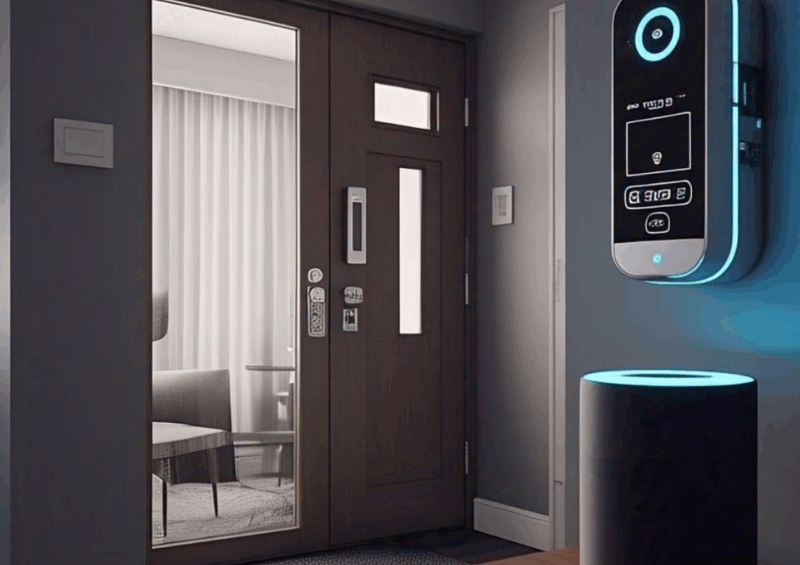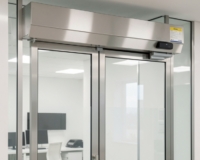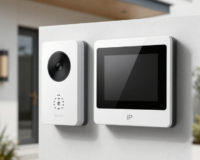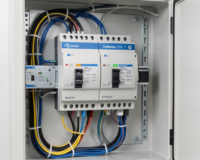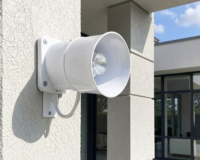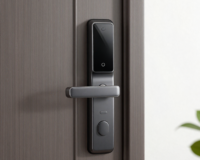Technology has become an integral part of our lives, and one of the most exciting innovations that has come to the fore in recent years is smart door automation. With the integration of AI (Artificial Intelligence) and IoT (Internet of Things), smart door systems have become safer, more efficient, and more user-friendly. Whether it’s for home security or improving business processes, these advanced systems are reshaping the way we think about door access control.
This comprehensive buying guide takes a deep dive into the future of IoT smart door automation, exploring the benefits, latest trends, potential use cases, and things to consider when upgrading your home or business security system.
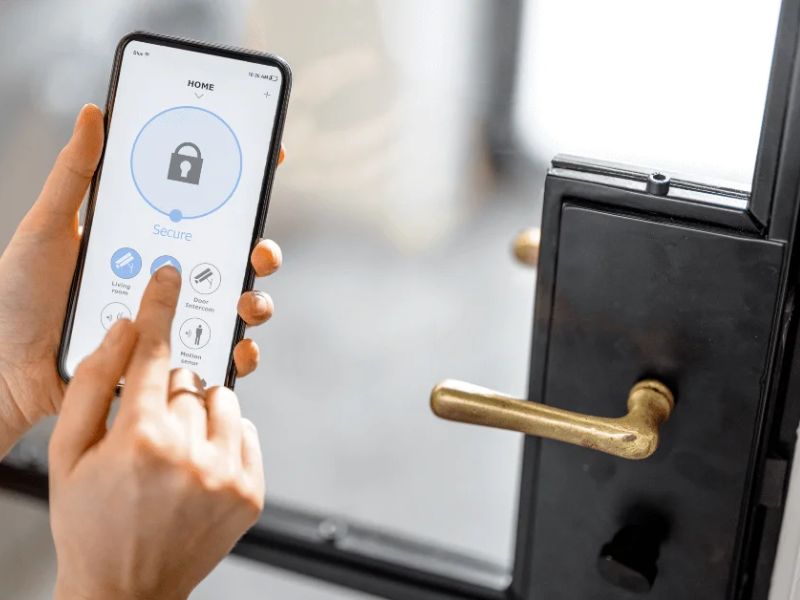
What is Smart Door Automation?
Smart door automation refers to a system that allows users to remotely control and monitor the locking, unlocking, and security functions of doors through a mobile app, voice assistant, or even via automated triggers. These systems rely on IoT to communicate data between devices, while AI enhances decision-making processes and provides adaptive learning.
A smart door typically consists of a smart lock, sensors, an access control system, and sometimes cameras. It integrates seamlessly with other smart home or business devices, creating a fully connected environment.
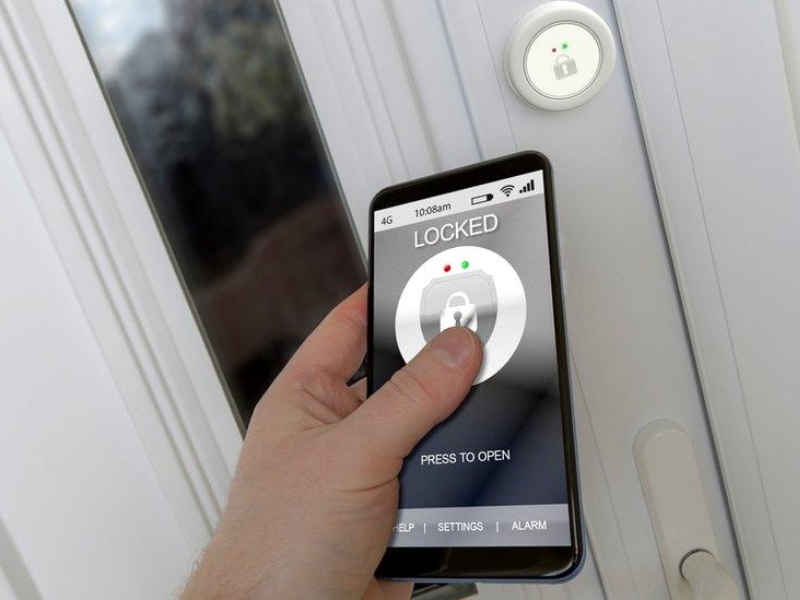
The Role of AI in Smart Door Automation
The ever-evolving world of technology has proven the importance of artificial intelligence. As such, Artificial Intelligence (AI) is fast becoming the backbone of smart technology, and AI-powered smart doors are no exception. Here’s how AI is changing the way we interact with door security systems:
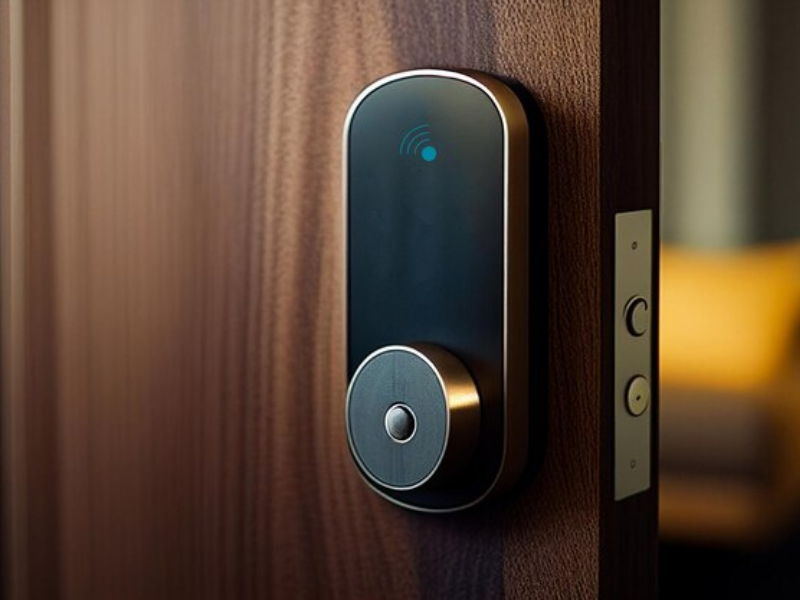
Facial Recognition & Biometric Technology
AI enables smart doors to recognize faces or fingerprints for access control. This technology not only increases convenience by eliminating the need for keys or cards, but also provides a higher level of security. This ensures safety in both homes and offices, especially where high security is required. The system can learn to differentiate between familiar faces and potential threats, making it much more accurate than traditional methods.
Adaptive Security Protocols
AI algorithms can adapt to environmental factors or usage patterns. For example, if the system detects unusual behavior when unlocking a door at a certain time, it can automatically trigger an alarm or locking protocol. AI can even learn typical intrusion patterns of a household or business, allowing it to predict and proactively respond to threats. When it receives an unusual signal, AI can notify humans remotely in a timely manner.
Voice Recognition
AI-enabled voice assistants, such as Amazon Alexa, Google Assistant, or Apple’s Siri, can integrate with smart door systems. Users can unlock doors with simple voice commands, adding convenience to the system.
Enhanced Authentication Systems
AI can analyze data patterns from multiple sources (such as doorbell cameras, motion sensors, and visitor patterns) to ensure that only authorized individuals are allowed into the premises. This will ensure the safety of families with children. It will also protect your children from illegal intrusions as kidnapping rates around the world are on the rise.
How IoT is Shaping Smart Door Technology
The Internet of Things (IoT) is the driving force behind smart home ecosystems, and smart door automation is no different. IoT refers to the interconnected network of devices that communicate and exchange data with each other over the internet. For smart door systems, this means:
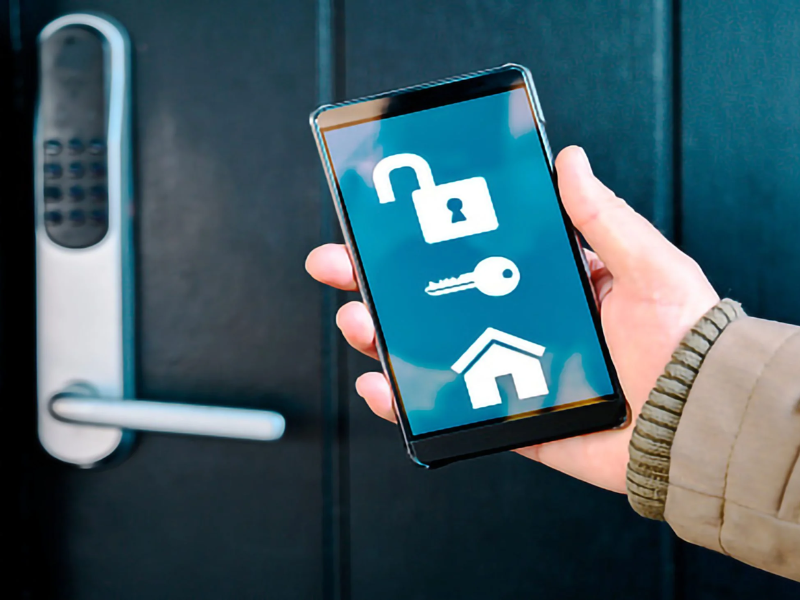
Remote Access and Control
With IoT-enabled smart doors, you can control access from virtually anywhere. Whether you’re at work, on vacation, or simply in another room, you can lock or unlock your door remotely using your smartphone, laptop, or tablet. This remote control is ideal for homeowners and businesses alike, allowing access to delivery services, guests, or employees without needing to physically be on-site.
Seamless Integration with Other Smart Devices
IoT allows smart door systems to interact with other smart home devices like lights, thermostats, security cameras, and even smart appliances. For example, a smart door may communicate with a smart camera to verify a visitor’s identity before granting access. It may also work with smart lights to illuminate a pathway as you approach the door.
Monitoring and Data Analytics
With IoT sensors embedded in smart doors, users can monitor real-time activity, including who enters or exits the building, at what time, and how frequently. Data analytics allows users to track patterns and gain valuable insights into their daily habits, helping businesses optimize operations or giving homeowners peace of mind about security.
Automatic Door Locking and Unlocking
IoT technology enables features like automatic locking or unlocking. For instance, your door can sense your presence via Bluetooth or geofencing technology, unlocking automatically when you approach and locking once you leave. This makes entering and exiting more convenient and secure.
Benefits of Smart Door Automation IoT
Smart door automation offers a range of advantages, particularly in the realm of security and convenience:
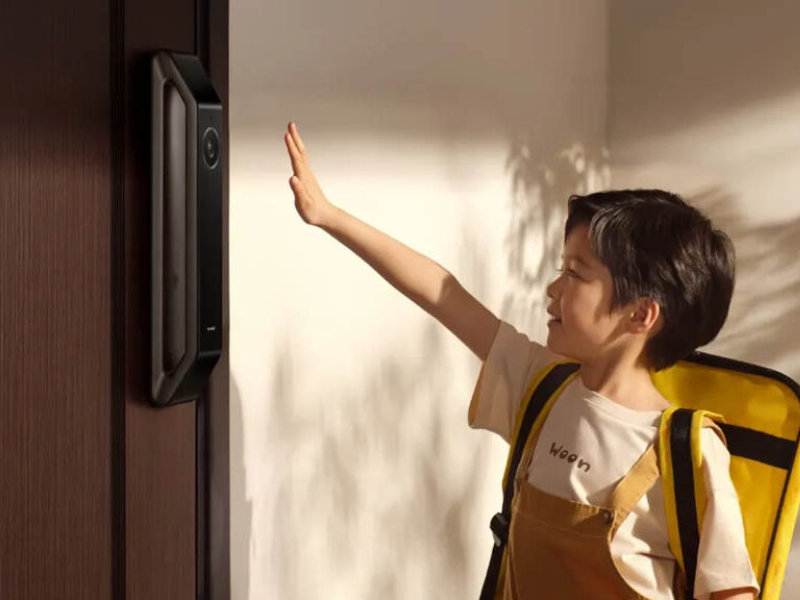
Enhanced Security
With features like real-time monitoring, instant notifications, and biometrics, smart door systems add multiple layers of protection to your home or business. They can detect unauthorized access, send alerts, and even lock doors automatically in response to security breaches.
Convenience and Accessibility
You no longer need to carry around a key or card. With IoT and AI, you can unlock doors with your smartphone, voice, or facial recognition. This increases accessibility, especially for elderly or disabled individuals.
Energy Efficiency
Smart doors can be linked to other home automation systems, such as smart thermostats or lights. When you leave your home, the smart door system can automatically trigger energy-saving settings, like adjusting the thermostat or turning off unnecessary lights.
Remote Monitoring
With IoT, you can check the status of your doors remotely, ensuring that they’re locked or monitoring activity in real-time. This is especially useful for businesses or individuals who travel frequently.
Cost-Effective in the Long Run
While smart door systems may come with an initial investment, they save money over time by reducing the risk of break-ins, property damage, and lost keys. For businesses, they also improve operational efficiency by streamlining access management.
Key Features to Look for in Smart Door Systems
When shopping for a smart door automation system, there are several key features you should consider:
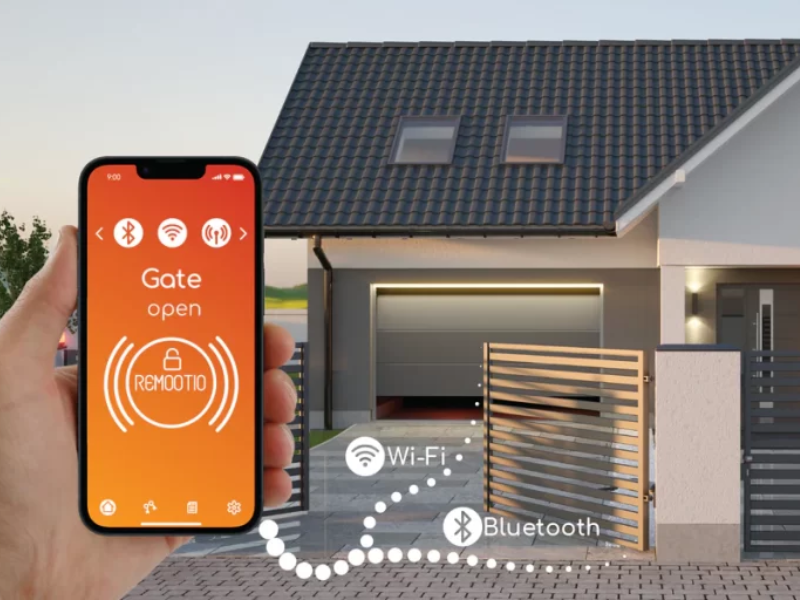
Smart Locks
Look for locks that offer multiple methods of access, including keypad entry, keycards, biometric authentication (fingerprint/face recognition), and mobile app integration.
Integration with Other Devices
Ensure the system is compatible with other IoT-enabled devices in your home or office, such as smart cameras, lights, and security systems.
Voice Control
Voice commands via platforms like Amazon Alexa or Google Assistant provide a hands-free way to control your door.
Real-Time Notifications
Receive alerts when someone accesses your door, or if there’s an attempted break-in. Some systems can send alerts for unusual patterns of entry.
Geofencing Capabilities
The system can automatically detect your location and unlock or lock doors when you enter or exit a designated area.
Battery Backup
In case of a power failure, a battery backup ensures that your smart lock continues to function.
Explore Our Smart Door Solutions & Save Big – Visit Digital Home Systems Today!
Real-World Use Cases of Smart Door Automation
The use of Smart Door Automation is becoming more and more popular in the 4.0 era because of the convenience and safety it brings.
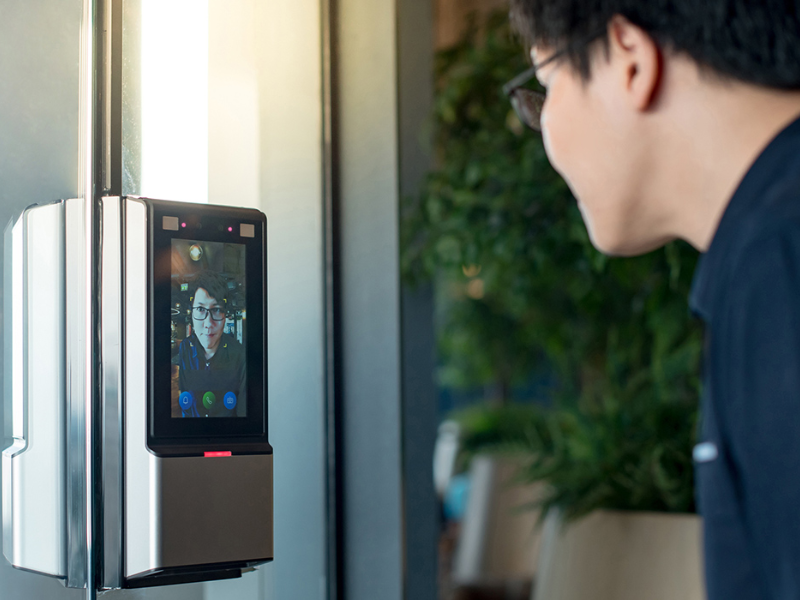
For Homes
Smart Door Automation IoT is an ideal solution for homeowners who want to improve security and simplify entry and exit. This system can ensure the door is locked when you leave the house and unlocked when you return. With features such as facial recognition and remote monitoring, they provide a higher level of security than traditional locks.
Especially, in an era where kidnapping is almost happening in any country in the world. The use of this system is even more necessary. It will protect your whole family from illegal intrusions and threats from the outside.
For Businesses
Businesses can benefit from smart door automation by improving access control. Employees can access the premises using key cards, biometrics or even a mobile app, while guests can be granted access remotely.
Businesses can also monitor foot traffic, track employee entry and exit times and ensure only authorized personnel are allowed in. This helps keep sensitive information secure, avoiding financial and reputational risks to the business.
For Vacation Rentals and Hotels
Property owners and managers can enhance the guest experience by using smart locks that provide temporary access codes. This eliminates the need for physical keys, reduces the risk of lost or stolen keys and improves the check-in process.
Don’t miss out on the latest deals in smart home automation! Visit Digital Home Systems to explore exclusive offers on smart door solutions.
The Future of Smart Door Automation IoT
As technology continues to advance, the future of smart door automation looks incredibly promising:
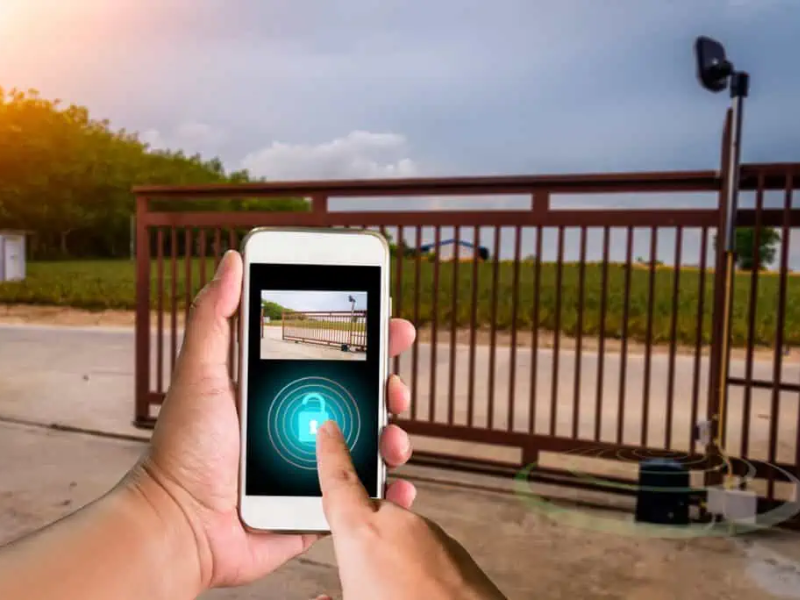
More Seamless AI Integration
AI will become more intuitive, learning from past behaviors and adapting security measures accordingly. Expect even smarter systems that can automatically adjust security settings based on environmental changes or detect unusual behavior patterns.
Wider Adoption in Commercial Properties
As IoT technology becomes more affordable, expect businesses of all sizes to adopt smart door automation for enhanced security and operational efficiency.
Better Privacy and Data Security
With growing concerns about data privacy, the future of smart door systems will likely see improved encryption protocols and more robust data security measures to protect user information.
Advanced Personalization
In the future, smart door automation IoT could offer hyper-personalized experiences, such as adjusting your home’s lighting, temperature, or music preferences when you walk in, based on your past behavior.
Conclusion
The future of smart door automation IoT is incredibly bright, with advancements in AI, IoT, and security technologies opening up new possibilities for both residential and commercial spaces. With benefits ranging from enhanced security and convenience to improved energy efficiency and cost savings, these systems are quickly becoming a must-have for modern homes and businesses.
As technology continues to evolve, smart door automation will become even more intelligent, intuitive, and integrated into our daily lives. When choosing a system, be sure to consider features like remote access, voice control, and integration with other smart devices to ensure that you are getting the most out of your investment.
Ready to experience the future of security? Discover smart door automation solutions at Digital Home Systems and take control of your home’s access with IoT technology.

